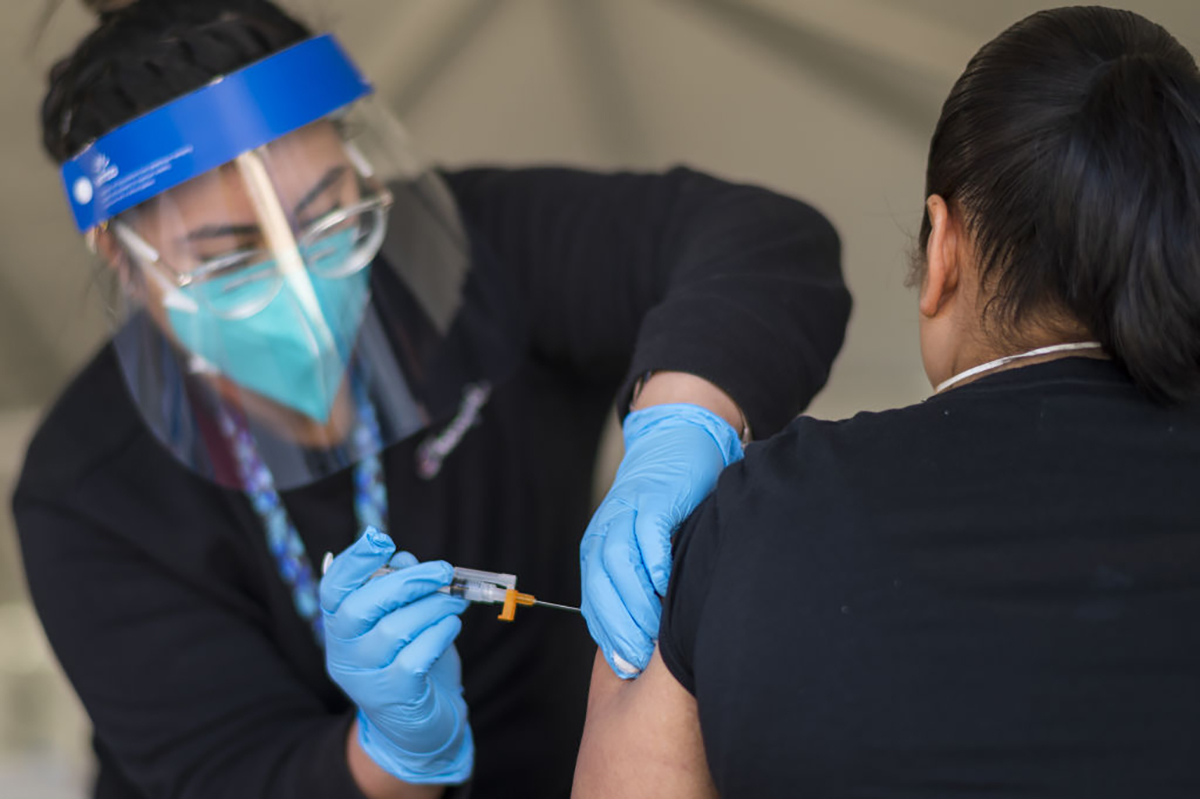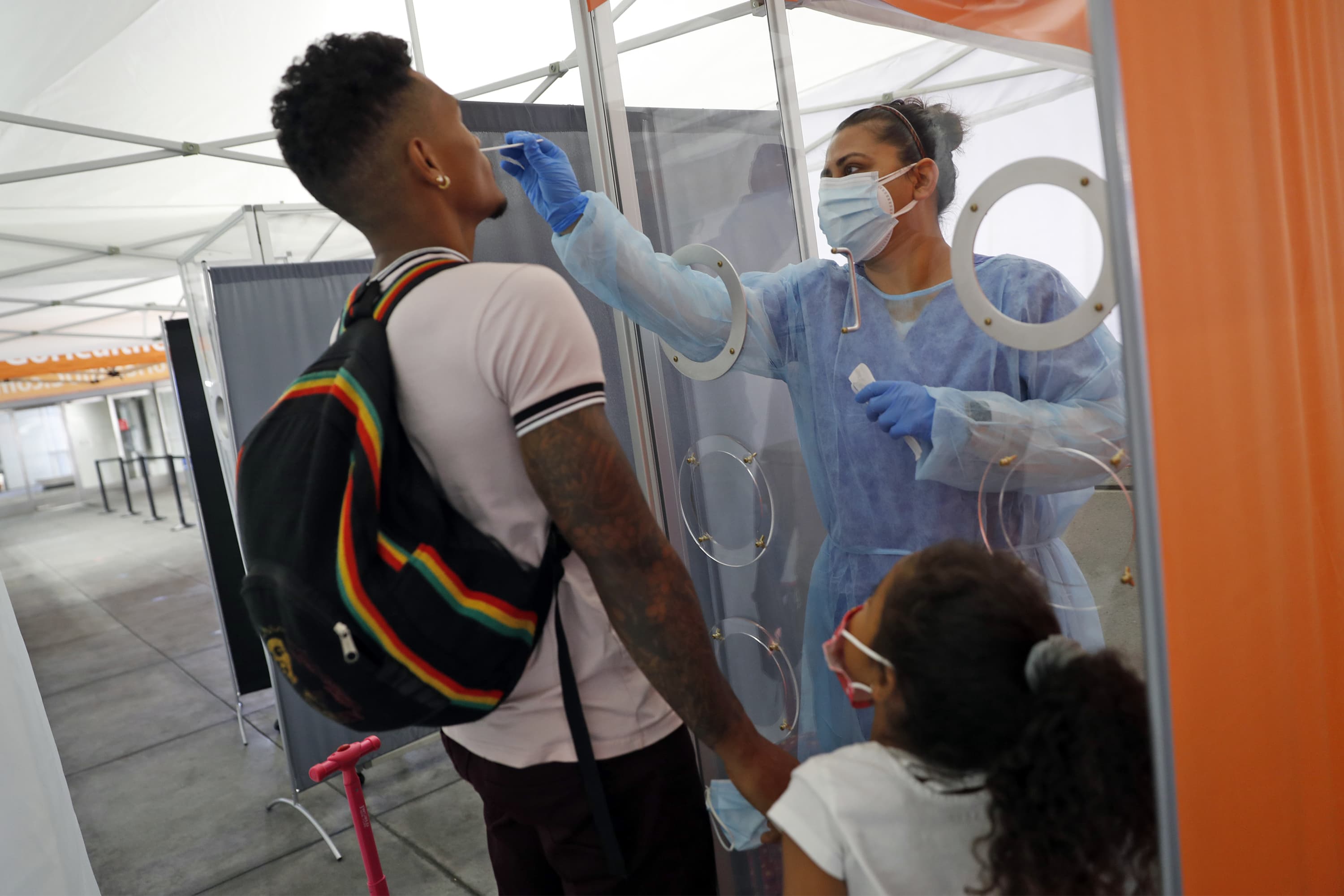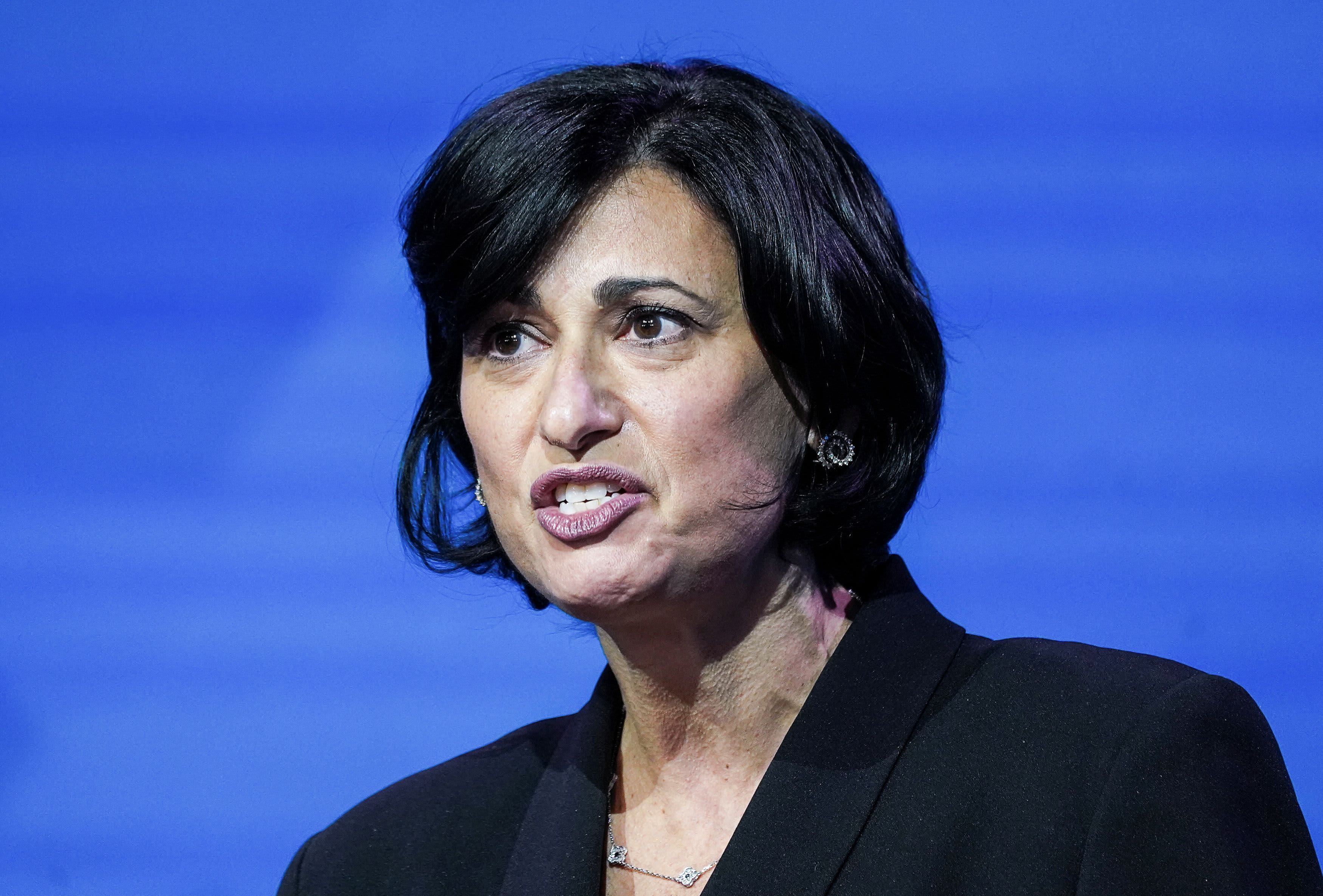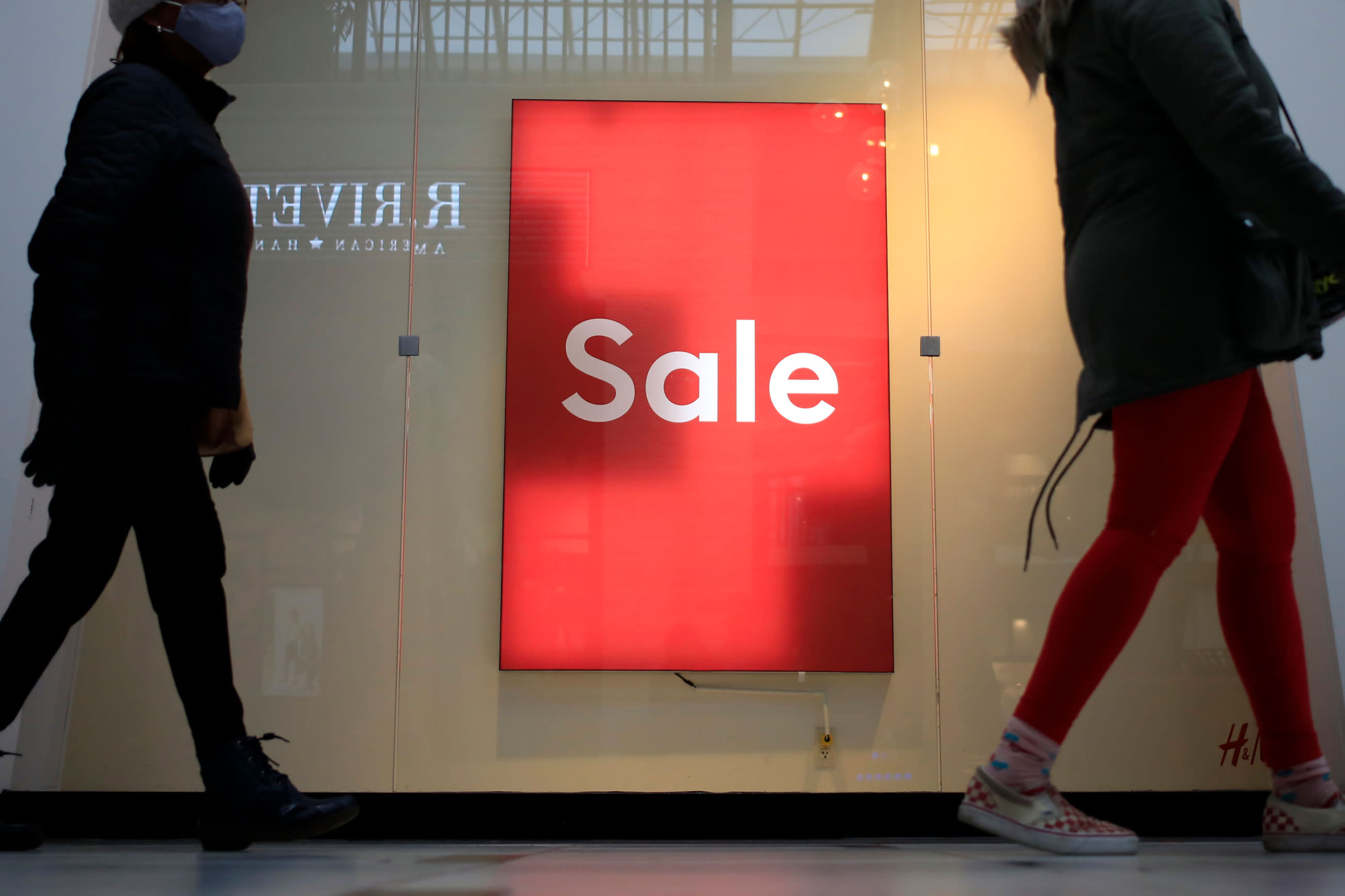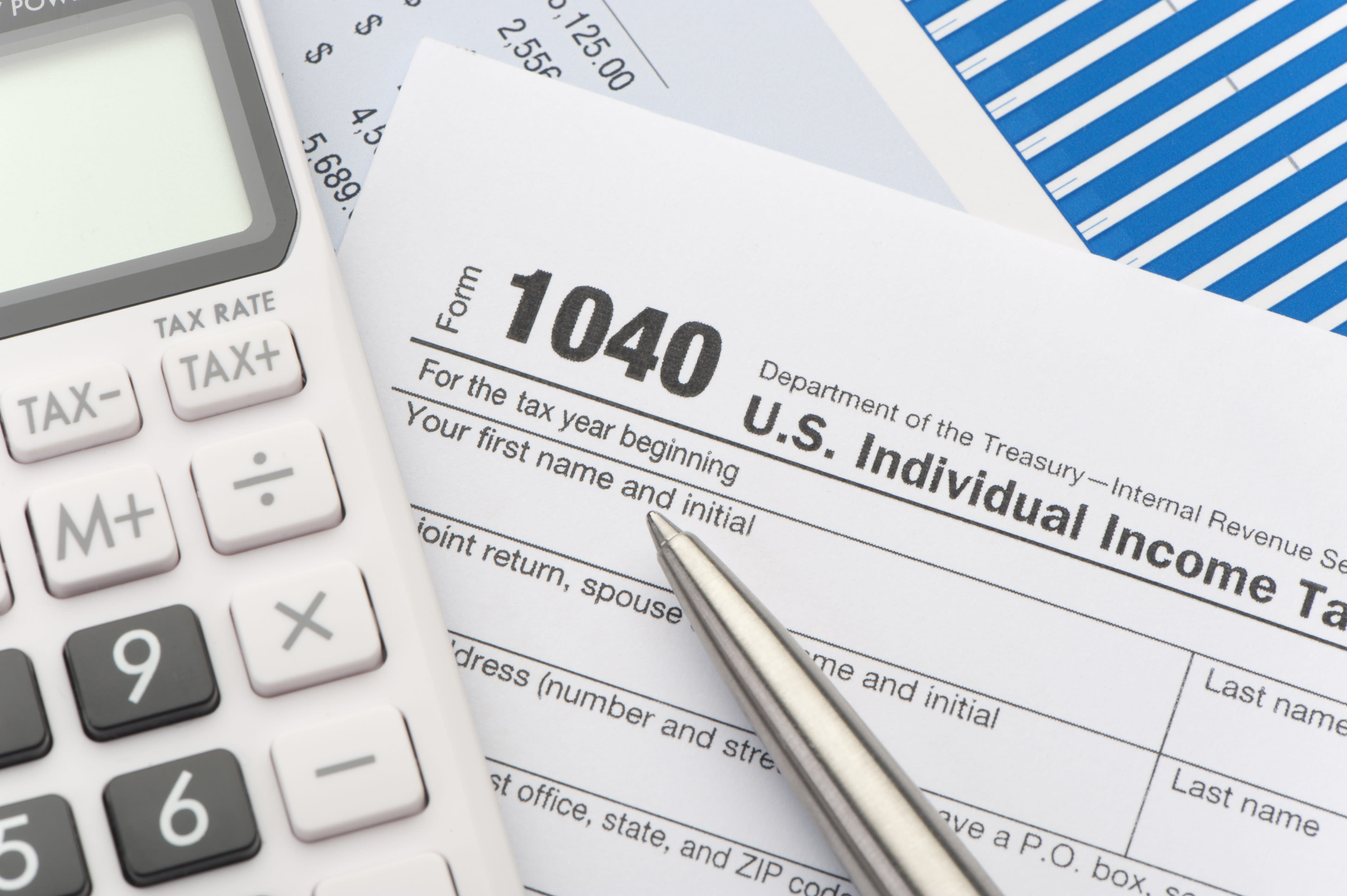What the Data Shows
Nearly 3,000 people across D.C., Maryland and Virginia tested positive for COVID-19 in the last day and hospitalizations are up across the region.
Virginia reported the region’s highest number of new cases, 1,496, and the seven-day average grew to 1,060.
We're making it easier for you to find stories that matter with our new newsletter — The 4Front. Sign up here and get news that is important for you to your inbox.
More than one-third of residents have received a vaccine dose and 19.2% are fully vaccinated. Local health departments are the leading vaccinators with 1.3 million doses delivered, followed by pharmacies (1 million).
Maryland’s seven-day average fell by 41 cases, reaching 1,271, an encouraging sign. The coronavirus has been spreading more rapidly in Maryland for weeks, and it's too early to tell if the trend is starting to turn around.
Maryland reports about 32% of residents have gotten the first dose of a vaccine. However, there are disparities between counties.
Talbot County leads with 40.5% of residents having a first dose. Montgomery County is at about 35% and Prince George’s is in the bottom five at 24.1%.
D.C. reported 170 new COVID-19 cases on Thursday and the seven-day average grew to 120.
The District says it has fully or partially vaccinated 23% of residents. About 12% have been fully vaccinated.
Local Coronavirus News
- D.C. Mayor Muriel Bowser will open COVID-19 vaccine appointments to Phase 2 on April 12. A week earlier than expected.
- The National Independence Day Parade has been canceled for 2021, the National Park Service announced, citing "logistics and planning limitations."
- The Virginia Employment Commission says that jobless workers collecting unemployment compensation will soon have to look for jobs again to receive benefits.
- Some mass vaccination sites in Maryland will offer a limited number of walk-up shots every day, no appointment needed.
- Fairfax County vaccine registration is now open for all essential workers in Phase 1c, including media workers, hairstylists, barbers and information technology workers. See specific category details here.
- A new mass vaccination site opened Wednesday at the Greenbelt Metro Station in Prince George’s County. It will offer shots to anyone, not just Maryland residents. Go online here to create an account.
- All D.C. residents over the age of 16 will be eligible to receive the COVID-19 vaccine Monday, April 19, the mayor announced.
- In President Joe Biden's $1.9 trillion American Rescue Plan, $5 billion are earmarked for Black farmers impacted by decades of discrimination made worse during the pandemic.
- Fairfax County Public Schools began to expand its in-person learning on Tuesday to four days a week for students who are struggling the most, Superintendent Scott Brabrand said.
- In Maryland, anyone older than 16 can preregister to get their COVID-19 shot at one of the state's mass vaccination sites. Here's how to sign up.
- NBC News is making finding information on when, how and where to obtain your coronavirus vaccination easier with its Plan Your Vaccine website.
Key Charts and Graphs
The vaccinated population in D.C. may be overestimated in this map because some non-residents who work in D.C. are included in the totals.
Vaccination Portals by County
As vaccinations in our region ramp up, here's a look at local portals residents can use to sign up for vaccination appointments or sign up to receive alerts.
- Washington, D.C. signups – vaccinate.dc.gov
- Maryland signups – www.marylandvax.org/ and covidvax.maryland.gov
- Virginia pre-registration– https://vaccinate.virginia.gov/preregister.html
- Montgomery County – www.montgomerycountymd.gov/covid19/vaccine/
- Prince George's County – www.princegeorgescountymd.gov/3730/COVID-19-Vaccination
- Howard County – www.howardcountymd.gov/Departments/Health/MM-Alerts-and-Recalls/COVID-19-Vaccine
- Anne Arundel County – aacounty.org/covidvax
- Fairfax County – www.fairfaxcounty.gov/health/novel-coronavirus/vaccine
- City of Alexandria – www.alexandriava.gov/health/info/default.aspx?id=119270
- Loudoun County – www.loudoun.gov/covid19vaccine
- Prince William County – coronavirus.pwcgov.org/vaccine-information/ & VDH
How to Stay Safe
Anyone can get COVID-19. Here are three simple ways the CDC says you can lower your risk:
- Wear a snug-fitting mask that covers your nose and mouth.
- Avoid being indoors with people who are not members of your household. The more people you are in contact with, the more likely you are to be exposed to COVID-19. If you are indoors with people you don’t live with, stay at least six feet apart and keep your mask on.
- Wash your hands often, especially after you have been in a public place.

